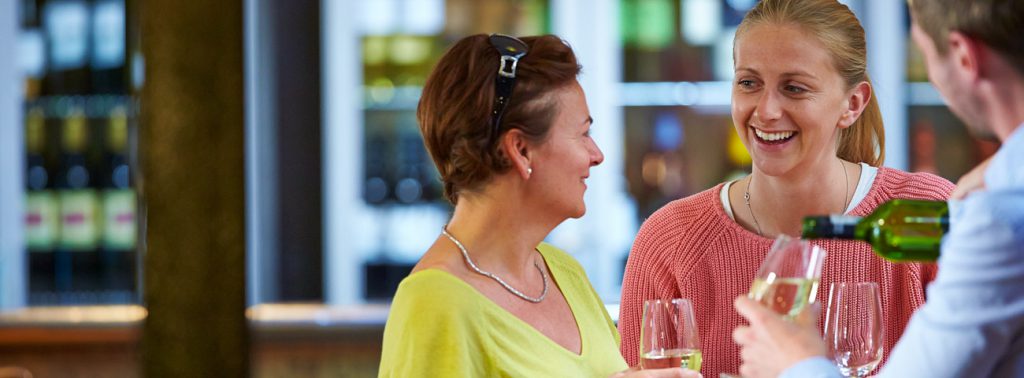Nine in ten UK consumers recognise the FAIRTRADE Mark, making it the most visible and top-of-mind ethical label in the UK today. A large majority (84%) also say they have trust in the label. Seven in ten people who recall purchasing Fairtrade-certified products would recommend Fairtrade to friends, a significant increase compared to half in 2015.
The comprehensive cross-continental study of 9,200 consumers was carried out for National Fairtrade Organizations across eight countries by international research and advisory consultancy GlobeScan.
Sarah Singer, Wine Supply Chain Manager at the Fairtrade Foundation said:
‘There is a very strong body of shoppers who identify with the values of Fairtrade and want business to play fair. Where they can, shoppers will reward companies that do the right thing through their purchasing choices, and more than ever seem prepared to influence others with their opinions.
‘Consumers have trust in the Fairtrade Mark and Fairtrade’s work in providing fair prices, a living income and helping farmers to escape from poverty is crucial to this trust.’
The Co-op is currently the world’s largest retailer of Fairtrade wine with a listing of 36 and Sainsbury’s offers 18. Fairtrade ranges are also available in Waitrose, M&S, Morrisons, Tesco, Majestic, Lidl, independent stores and online.
‘The great news for wine lovers is that we’re seeing increasing growth and availability of Fairtrade wine in the UK, with more of a higher quality. The resulting impact that independent certification brings is being celebrated by small farmers and workers. In South Africa, Fairtrade’s dedicated wine programme is focusing on driving even greater impact to workers on Fairtrade vineyards’, Sarah continued.
Fairtrade wines are produced in South Africa, Argentina, Chile and Lebanon, with each origin having a different need and reason for Fairtrade’s intervention. Today, more than 45 Fairtrade wine producers, wine manufacturers and plantations work with Fairtrade.
Apartheid in South Africa left a legacy of shocking conditions, low wages alcoholism (workers used to be paid in alcohol) and inadequate housing among the black population working in the wine industry, as well as grossly unequal land distribution, and the FAIRTRADE Mark here stands for decent working conditions and wages for hired labour producers, as well as prohibiting child labour and gender discrimination. Often, the Fairtrade premium funds educational and community projects as well.
Chile and Argentina’s wine regions have long histories of cooperatives, many of which are struggling to survive. Low market prices mean many small-scale farmers live in great poverty and are at the mercy of unscrupulous employers and buyers, and Fairtrade standards ensure a reasonable minimum price for grapes, as well as investment in farming practices, education and healthcare.
Lebanon has only one Fairtrade wine – Côteaux les Cèdres du Liban, from the Bekaa valley (£12 Co-op, £15.77 Amazon, 13.5%). In a region better known for cannabis cultivation, this project encourages farmers to switch from cannabis production to grapes, so offering them a more sustainable and stable future.
Fairtrade is the only certifier to provide a safety net of a minimum price for farmers in times of global price decline plus a premium, an extra amount of money that goes direct to farmers to collectively spend in their own communities.
The Fairtrade Minimum Price covers the cost of sustainable production for growing wine grapes and this means that producers can invest in their farms, businesses and quality of the crops. Many wine producers express concerns that they are being compromised to sell their grapes below a sustainable price and that’s why the Minimum Price structure exists, to protect farmers from market pressures and volatility.
When you see the FAIRTRADE Mark on a bottle of wine, it means the producers and traders have met robust Standards of certification. The Fairtrade Standards are designed to address the imbalance of power in trading relationships, unstable markets and the injustices of conventional trade. If a company is using the FAIRTRADE Mark they must follow these and they must source from Fairtrade-certified producer organisations which means smallholders and workers benefit.
Find out where you can buy an increasing range of wonderful Fairtrade wines from South Africa, Argentina, Chile and Lebanon.
